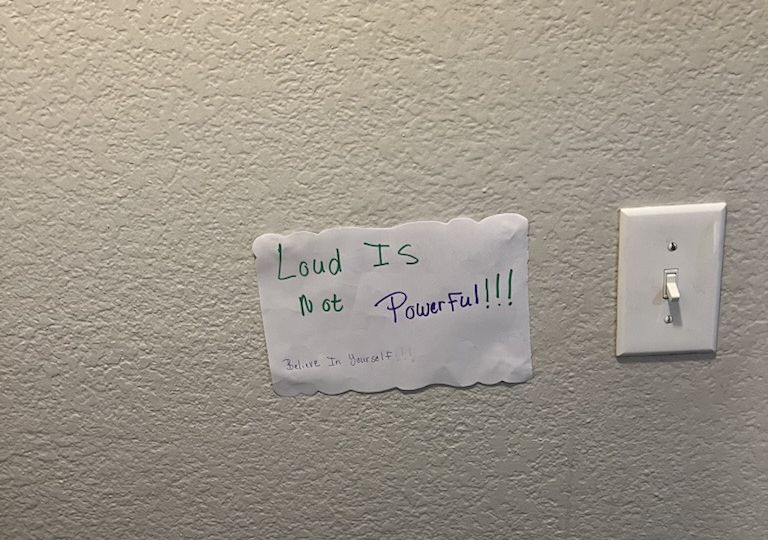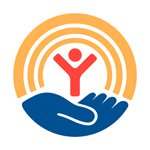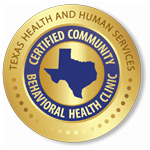From Chaos to Confidence: One Family’s Journey Toward Healing

At the urging of her children’s teacher, she came to Metrocare seeking support, guidance, and tools to manage the challenges her children were facing. What followed was a journey that would change not only her children, but her as well.
When Chanda first walked through Metrocare’s doors, she was apprehensive—carrying the weight of exhaustion and worry that only a mother doing everything she can for her children truly knows. At the time, Chanda and her kids had just uprooted their lives—temporarily staying at a shelter after fleeing a domestic violence situation at home. While there, her younger kids enrolled at Vogel Alcove’s childcare center, which provides support and programming to young children and their families experiencing homelessness and poverty. However, it wasn’t long before the children’s behavior became hard to ignore. Teachers began noticing the children struggled to focus, with the second youngest, Trayvion, having more pronounced challenges. He frequently acted out in class, had trouble following directions, and often pushed back against authority. Concerned about his behavior, his teachers recommended Metrocare.
“When I took Tray to his first Metrocare appointment, I was nervous. I was scared because I did not know a lot about what was going on about him,” Chanda explained. “So, I was very nervous, but I was also nervous for him because I didn’t know what this could mean for him. Is he going to be dealing with this for the rest of his life? Am I ready for that? Are his siblings ready for that? It was hard to sleep the night before, it really was.”
Trayvion was formally diagnosed with Attention-Deficit/Hyperactivity Disorder (ADHD) and Oppositional Defiant Disorder (ODD), with his siblings receiving similar diagnoses in the months that followed. Metrocare’s team immediately got to work, helping Chanda and her kids build a structured, supportive environment grounded in healthy behavioral strategies and compassionate coping skills, like the rubber band method and deep breathing techniques.
“I came from a family where there was a lot of hollering and yelling. One of the best things I learned was that ‘Loud is not always powerful’,” Chanda said. “I have that message printed in our house. I have a lot of signage around the house as reminders for both me and my kids. Reminding us of those coping skills really does help a lot.”
It only took a few sessions with Metrocare for Chanda to begin noticing changes. Now—over 7 years after that initial visit—her children are nearly unrecognizable from when they first came for services.
“It seems like their confidence has grown. They are not as aggressive, they are happier, they are more empathetic, they care about animals and the environment, and they get along with each other better. I can’t explain it… it’s just like night and day,” Chanda began. “I don’t get as many calls to the school as I did. They are so well behaved; I even get compliments on how they act in public.”
The family has settled into a steady routine. They visit Metrocare monthly for medication refills, and Chanda continues to check in weekly with her Metrocare clinician, Suzanne, for updates and guidance. Recently, Chanda—who described herself as quiet and shy—made the brave decision to join virtual group therapy sessions. Initially planning to just listen in, she even surprised herself by gradually sharing information, leading discussions, and offering support to others.
“That first group session I just listened. It felt good to know I was not the only parent that was experiencing having kids with disabilities and challenges. I felt like I wasn’t alone, so I started talking and sharing some of the methods Metrocare taught me with other parents,” Chanda said. “I’ve learned a lot from therapy. I’ve learned that it’s not my fault that my kids have this challenge. A lot of parents, we always assume it’s because of us and something we did.”
Suzanne often reminds parents of that very same thing when they come through Metrocare’s doors, helping them navigate the complexities of raising children with unique challenges. She has been working with Chanda since 2021 and is deeply committed to creating an environment where families, like Chanda’s, feel understood and empowered.
“Therapy should be a safe place,” Suzanne began. “It takes a village to raise healthy children and Metrocare is here to be that village—to value and respect every individual and family. We approach the problems as unique, with each member serving as the expert of their own lives. No judgement. No criticism. Just help.”
When asked, Chanda shared the advice she would give to parents contemplating reaching out to Metrocare for help.
“Run. Run, don’t walk,” Chanda laughed. “But really, sometimes as parents we struggle with what people may think of our kids. And we need to throw that out the window and actually think about our kids. We need to help them as soon as possible. That is the main thing I would tell them—throw that pride out the window and put the kids first.”
Chanda’s decision to reach out to Metrocare led to outcomes she could have never anticipated—transforming their entire family dynamic. While challenges still arise, they face them together. Chanda involves her children in every step of their mental health journeys, teaching them what their medications are for and helping them recognize how to manage their needs independently. They’ve grown into a family that not only supports one another but also genuinely enjoys being together—whether it’s cooking meals, karaoke nights, filming silly music videos (Chanda serving as the family’s creative director), or playfully pranking one another. Through it all, they’re building a healthy, joyful, and fulfilling life, one moment at a time.
Stay connected
Sign up for our newsletter










